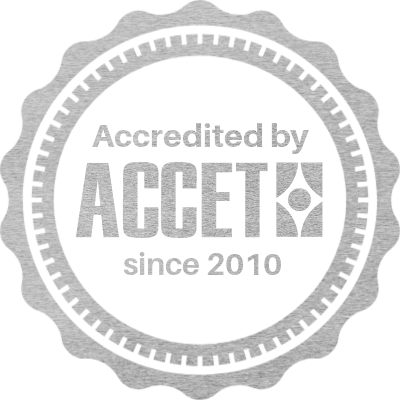In the wake of the recent closure of a Honolulu trade school offering low-cost programs in healthcare, many students are left questioning the viability and quality of their education choices. The now-defunct institution, which prided itself on being an affordable alternative to local colleges, ultimately shut down due to its lack of accreditation and inability to sustain operations beyond a few years. This unfortunate event underscores the importance of selecting a reputable and accredited institution for healthcare education.
At Hawaii Medical College (HMC), we want to assure students, graduates, and partner employers of our steadfast commitment to providing quality education and long-term stability. HMC continually adapts to meet the evolving needs of the community, offering highly sought-after programs that ensure Hawaii’s healthcare industry is staffed with well-trained professionals. Our programs include Clinical Medical Assistants, Healthcare Administration Billers & Coders, Pharmacy Technicians, and Advanced Nurse Aides.
The Pitfalls of Low-Cost Colleges
Inadequate Curriculum and Training
- Curriculum: One significant drawback of low-cost trade schools is the potential for an inadequate curriculum. Healthcare is a complex field that demands extensive knowledge and practical skills. Budget colleges may offer shorter programs that cut corners on essential coursework, leading to gaps in critical areas such as anatomy, pharmacology, and patient care techniques.
- Training: Hands-on training is a crucial component of healthcare education. Practical experiences allow students to apply theoretical knowledge in real-world settings. However, low-cost institutions may lack the resources to provide adequate clinical practice, access to up-to-date equipment, and sufficient laboratory facilities, hindering students’ ability to acquire the necessary skills.
Hawaii Medical College prides itself on offering well-developed programs taught by experienced staff in facilities that replicate real-life scenarios. Additionally, all HMC students must complete an externship in the field before graduating, ensuring they gain the hands-on experience both they and their future employers value.
Lack of Accreditation and Certification
Accreditation is a key indicator of an educational institution’s quality and credibility. Accredited programs are rigorously reviewed to ensure they meet high standards of education and training. Unfortunately, many low-budget colleges lack proper accreditation, which can severely impact graduates’ career prospects.
Graduating from a non-accredited program can limit employment opportunities, as many healthcare employers require credentials from accredited institutions. Furthermore, many professional certifications and licenses, essential for numerous healthcare positions, can only be obtained through accredited programs. Without these qualifications, securing a job in the healthcare field becomes significantly more challenging.
Hawaii Medical College is accredited by the Accrediting Council for Continuing Education & Training (ACCET) and is consistently monitored to ensure the highest educational standards.
Poor Career Support and Networking Opportunities
Transitioning from education to employment requires robust support systems. High-quality trade colleges like Hawaii Medical College offer comprehensive career services, including job placement assistance and networking opportunities with industry professionals. These services are crucial in helping graduates secure their first jobs and advance their careers.
In contrast, low-cost trade colleges often lack extensive career support services. Without proper guidance and networking opportunities, students may struggle to navigate the job market and connect with potential employers, delaying or hindering their entry into the healthcare field.
Long-Term Financial Implications
While attending a low-cost trade college might seem financially advantageous initially, the long-term implications can be detrimental. Graduates from low-quality programs often struggle to find well-paying jobs due to inadequate training and lack of credentials, leading to lower lifetime earnings and prolonged job insecurity.
Investing in a reputable, accredited education from Hawaii Medical College, on the other hand, provides a strong foundation for a successful and financially stable career. To learn more about our programs, visit HMC’s website.
More About Hawaii Medical College
Established in May 2007, Hawaii Medical College is a locally owned, accredited career institution dedicated to fostering a supportive and care-oriented learning environment. Our professional staff trains students for successful careers as medical assistants, medical billing and coding specialists, office assistants, and nurse aides. HMC supports a diverse student body, including military veterans and recent high school graduates, ensuring they achieve their career goals.
Each year, HMC boasts program completions of between 200-400 students, high certification pass rates, and impressive job placement rates. Our mission is to create a nurturing environment where staff and students alike can develop the talents necessary for success in their chosen careers.
Choose Hawaii Medical College for a brighter, more secure future in healthcare.





